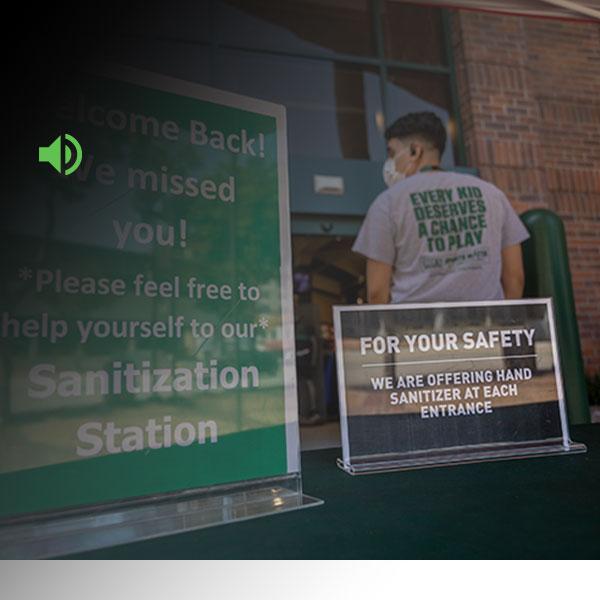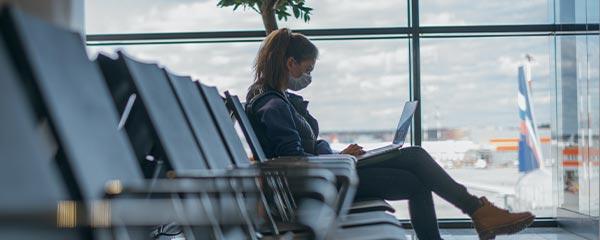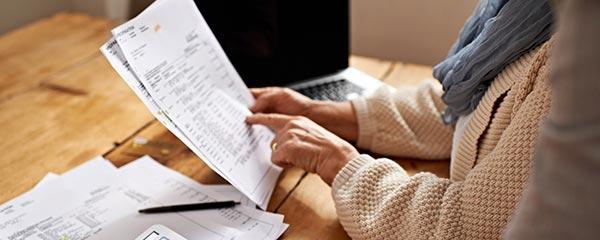Editor's Note: The research below was conducted in partnership between Franklin Templeton and ║┌┴¤═°.
WASHINGTON, D.C. -- A new analysis from Franklin Templeton and ║┌┴¤═° finds that a number of factors -- such as state mask mandates, anticipation of extreme consequences from COVID-19 and misperceptions of the virus's severity -- are predictive of Americans' confidence that they can protect themselves from COVID-19. The analysis also finds that those more confident about protecting themselves are more likely to visit public establishments, helping to spur the economy while still respecting public health guidelines.
These results are based on more than 5,000 web-based surveys completed Sept. 4-13, 2020, as part of the Franklin Templeton-║┌┴¤═° Economics of Recovery Study. This study is conducted via an opt-in web panel. The sample has been adjusted statistically to ensure it represents key subgroups in their proper proportions of the U.S. adult population.
The findings point to a number of specific influences on individuals' perceived risk:
- Mask use: Americans living in states that mandate mask use for workers are more likely than those who do not to be "very confident" in their ability to protect themselves from infection while out in public (30% vs. 22%, respectively). The relationship is particularly strong among Republicans; 35% of those in states with worker mask mandates are very confident they can protect themselves, compared with 24% of those in states without a mandate. This relationship between masks and confidence in avoiding infection is also present at the individual level with regard to personal mask use; those who say they are likely to wear a mask tomorrow if they are out of their house and in a public place are more confident they can protect themselves.

Bar graph. Americans' confidence they can avoid infection with COVID-19, by the whether or not the state they live in has a mask mandate. 30% of Americans who live in states with a mask mandate are "very confident" they can avoid COVID-19 infection, compared with 22% in states without a mandate. 35% of Republicans who live in states with a mask mandate are "very confident" they can avoid COVID-19 infection, compared with 24% in states without a mandate. 29% of Democrats who live in states with a mask mandate are "very confident" they can avoid COVID-19 infection, compared with 20% in states without a mandate. 25% of Independents who live in states with a mask mandate are "very confident" they can avoid COVID-19 infection, compared with 18% in states without a mandate.
-
Coronavirus misperceptions: Underestimation of COVID-19's impact may lead to inflated belief in one's ability to avoid infection. In the current analysis, those who mistakenly believe the flu has caused more U.S. deaths than the coronavirus so far in 2020 are more likely than not to be "very confident" they can avoid infection. (Those who are correct in their belief that the coronavirus has caused more deaths than the flu, by contrast, are more likely than not to be less than very confident.) CDC estimates from recent years typically put the annual number of U.S. flu-related deaths between 30,000 and 60,000, versus over 200,000 coronavirus-related deaths so far in 2020.
-
Fear: The current analysis finds that, after controlling for age, those who say it would take them at least a few months to recover from COVID -- or that they would never fully recover -- are less likely to be confident in their ability to avoid infection. This reflects a common finding in risk perception studies: Powerful emotions like fear play a significant role -- one that doesn't always correspond to actual risk. For example, respondents' likelihood to say they would never recover from the coronavirus has no statistical relationship with the COVID-19 death toll in their county for September.
- Demographics: A number of demographic variables are linked to Americans' confidence that they can protect themselves from coronavirus infection. Some relationships are predictable: Older Americans are less likely to be very confident in light of their greater vulnerability to severe illness from COVID-19, and men are more likely than women to express confidence, in line with previous research showing women are more likely to underestimate their abilities in general. Other demographic differences are more surprising, including race/ethnicity: Despite higher levels of concern about coronavirus among Black and Hispanic Americans, they are more likely than White and Asian Americans to say they can protect themselves from infection in public.
Americans' Confidence in Ability to Avoid Infection Linked to Consumer Behavior
Americans' confidence in avoiding COVID-19 infection has strong linkages to public activity and consumption, especially in the industries hit hardest by the pandemic. Individuals who are very confident that they can avoid infection while out in public are at least twice as likely as those who express less confidence to have dined out in the past 24 hours, visited a gym in the past 48 hours, visited a salon or barbershop in the past 48 hours, or booked a flight that departs in the next 30 days.
| Less than very confident | Very confident | |||||||||||||||||||||||||||||||||||||||||||||||||||||||||||||||||||||||||||||||||||||||||||||||||||
|---|---|---|---|---|---|---|---|---|---|---|---|---|---|---|---|---|---|---|---|---|---|---|---|---|---|---|---|---|---|---|---|---|---|---|---|---|---|---|---|---|---|---|---|---|---|---|---|---|---|---|---|---|---|---|---|---|---|---|---|---|---|---|---|---|---|---|---|---|---|---|---|---|---|---|---|---|---|---|---|---|---|---|---|---|---|---|---|---|---|---|---|---|---|---|---|---|---|---|---|---|
| % | % | |||||||||||||||||||||||||||||||||||||||||||||||||||||||||||||||||||||||||||||||||||||||||||||||||||
| In the last 24 hours, have you: | ||||||||||||||||||||||||||||||||||||||||||||||||||||||||||||||||||||||||||||||||||||||||||||||||||||
| Dined at a restaurant (outside) | 8 | 16 | ||||||||||||||||||||||||||||||||||||||||||||||||||||||||||||||||||||||||||||||||||||||||||||||||||
| Dined at a restaurant (inside) | 11 | 22 | ||||||||||||||||||||||||||||||||||||||||||||||||||||||||||||||||||||||||||||||||||||||||||||||||||
| In the last 48 hours, have you visited: | ||||||||||||||||||||||||||||||||||||||||||||||||||||||||||||||||||||||||||||||||||||||||||||||||||||
| A gym | 4 | 10 | ||||||||||||||||||||||||||||||||||||||||||||||||||||||||||||||||||||||||||||||||||||||||||||||||||
| A salon or barbershop | 5 | 10 | ||||||||||||||||||||||||||||||||||||||||||||||||||||||||||||||||||||||||||||||||||||||||||||||||||
| Have you done any of the following: | ||||||||||||||||||||||||||||||||||||||||||||||||||||||||||||||||||||||||||||||||||||||||||||||||||||
| Booked a flight that departs within 30 days from now | 9 | 24 | ||||||||||||||||||||||||||||||||||||||||||||||||||||||||||||||||||||||||||||||||||||||||||||||||||
| Reserved a hotel or similar accommodation within 30 days from now | 10 | 23 | ||||||||||||||||||||||||||||||||||||||||||||||||||||||||||||||||||||||||||||||||||||||||||||||||||
| Rented a car that you will use within 30 days from now | 7 | 19 | ||||||||||||||||||||||||||||||||||||||||||||||||||||||||||||||||||||||||||||||||||||||||||||||||||
| FRANKLIN TEMPLETON/GALLUP, SEPt. 4-13, 2020 | ||||||||||||||||||||||||||||||||||||||||||||||||||||||||||||||||||||||||||||||||||||||||||||||||||||
Implications
Confidence in one's ability to avoid hazards -- particularly unusual and extreme hazards like the coronavirus -- can be influenced by numerous objective and subjective factors, not all of which may be influenced by policymakers and public health officials. However, one important factor that arises consistently in risk perception studies with regard to unpredictable events like natural disasters is self-efficacy -- the idea that one has some level of control over one's exposure and vulnerability to the danger.
To the extent that officials can help give people a sense that they have some control over their likelihood to be infected in public -- through assurances that those they interact with will be masked, or by providing specific information about businesses' distancing and disinfection protocols -- they may boost consumers' confidence that they can safely reengage with the businesses and services they used before the pandemic.
To receive ongoing updates about findings from the Franklin Templeton-║┌┴¤═° Economics of Recovery Study, please . To read the project announcement press release, please .




